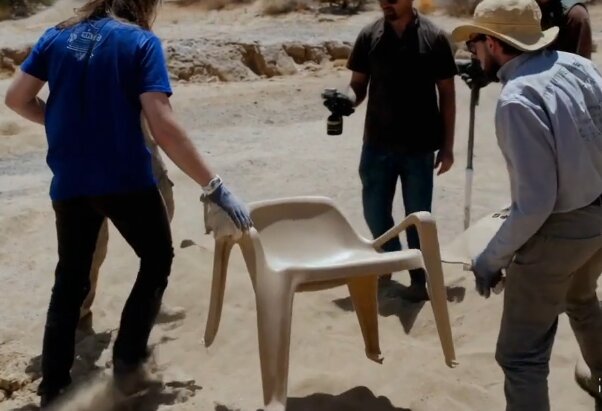- Sora is a text-to-video AI model by OpenAI that can create up to one-minute-long videos based on user prompts.
- It can cater to animated videos, HD resolutions, sceneries, and anything imaginable.
- While Sora has great potential, its capabilities are currently limited in understanding physics, motion, and human interactions.
Impact On The Industry
Sora’s Capabilities
AI is about to replace the film making industry
OpenAI has just launched Sora, an AI model capable of creating 60-second videos just from text prompts.
11 insane examples
1. Space movie trailer featuring a man wearing a red wool knitted motorcycle helmet pic.twitter.com/OXrGG6GeoT
— The AI Colony (@TheAIColony) February 15, 2024
Looking at this clip alone, we can conclude it is a piece of art. The vivid colors, lifelike scenery, attention to detail, sharpness, and portrayal of the astronaut are top-notch. Other examples on the Sora website, like a woman walking down a Tokyo street and Mammoths treading down a snowy meadow, also left the public in awe.
Should The Entertainment Industry Fear Sora by OpenAI?
While these examples are fascinating, as an avid tech explorer, I do not believe Sora can replace filmmakers. Why? There are various reasons to think so.
First, the human mind’s creative aspect is far greater than what an AI-based model can achieve. While AI can indeed generate vivid and precise clips, it often falls short of capturing the element of humanity in its videos.
Secondly, Sora has limitations, as mentioned in its technical report by OpenAI. It fails to accurately display human interactions, produces spontaneous appearance of objects, and inaccurately perceives concepts of physics, like glass shattering. It sometimes also adds additional hands, legs, and fingers when showcasing humans or animals.

Most importantly, sometimes, one can easily guess that an image or a video is AI-generated. This raises doubts about the credibility of the organization or the studio. The efforts put into making a video or a film make it much more valuable than simply generating it with an AI.
Considering these aspects, Sora can not replace filmmakers or videographers. Instead, it can serve as a tool to generate ideas, inspire oneself, and visualize how an abstract idea can be represented differently. When used as a tool for video generation, it can cut up costs and time spent testing different concepts before finalizing the one perfect idea. Furthermore, it can save travel hassles.
The Future
Sora is in its early stages and can only generate short snippets, not complete films or videos. Thus, those in the visual entertainment field can use this tool to streamline the process. However, it will likely be years before they can exclusively rely on such AI models to create entertainment content.
It sounds far-fetched to believe that Sora can replace filmmakers and video editors, but it could be possible in the coming years. Honestly, I am curious to discover how Sora will reshape video generation as we know it. Its future appears exceedingly promising, and I wonder to what extent it can compete with actual human minds.
Latest Updates
- Looking Back, 2018 Was A Legendary Year For Gaming
- GTA 6: We’re Setting Ourselves Up For Disappointment With Wild Expectations
- Why Pre-Built PCs Are A Great Choice Instead Of Building One
- Sekiro Should Be Next In Line For FromSoftware Sequels
- Naruto Storm Has Been Reduced To A Shell of Its Former Self
Thank you! Please share your positive feedback. 🔋
How could we improve this post? Please Help us. 😔





